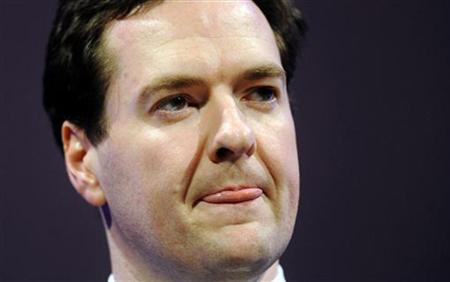George Osborne to present first Emergency Budget this week

Chancellor George Osborne is expected to end child benefits for the middle classes, cut public sector salaries and reduce National Insurance contributions when he announces his Emergency Budget this week.
The coalition government is also likely to increase VAT, with ministers refusing to rule it out when questioned by the opposition and the media. Should VAT be increased from 17.5 per cent to 20 per cent it could potentially raise an extra ten billion pounds in a year.
Mr Osborne may also cut the number of families receiving child benefit by two million by reducing the maximum income at which families can receive it to thirty thousand pounds. Currently families with an income of up to fifty-eight thousand pounds receive child benefit, or up to sixty-six thousand pounds if their child is under one year old.
Public sector pay also looks likely to be reduced with Prime Minister David Cameron declaring that controlling pay would allow the government to keep more jobs at the public sector.
At their annual conference last year, before being elected, the Conservative Party said it wanted a pay freeze in the public sector for all workers earning above eighteen thousand pounds a year.
The Confederation of British Industry has also called, in recent weeks, for a freeze on the size of the overall public sector pay bill. This would allow salaries to go up but would mean measures such as not recruiting new people when a post becomes vacant would also be introduced.
The Budget is also likely to see significant changes to both National Insurance contributions and Capital Gains Tax. Before the election the Tories pledged to cancel Labour's planned rise in NI, or a "tax on jobs" as they called it. However due to their coalition with the Liberal Democrats it is thought these proposals will be significantly watered down.
The coalition is also likely to see an increase in Capital Gains Tax, something the Conservatives did not promise and an issue which has stoked some rebellion among Tory backbenchers. While it is likely to rise significantly from 18 per cent to 40 or 50 per cent there are also likely to be concessions to Conservative backbenchers to again water down the proposal.
© Copyright IBTimes 2025. All rights reserved.




















